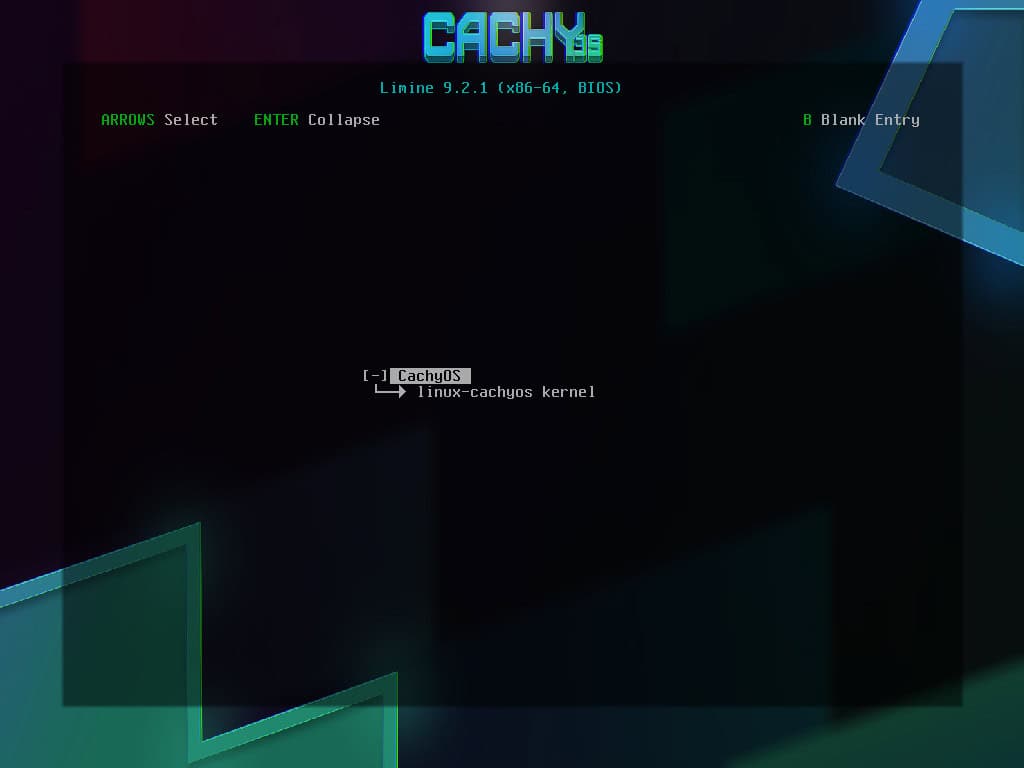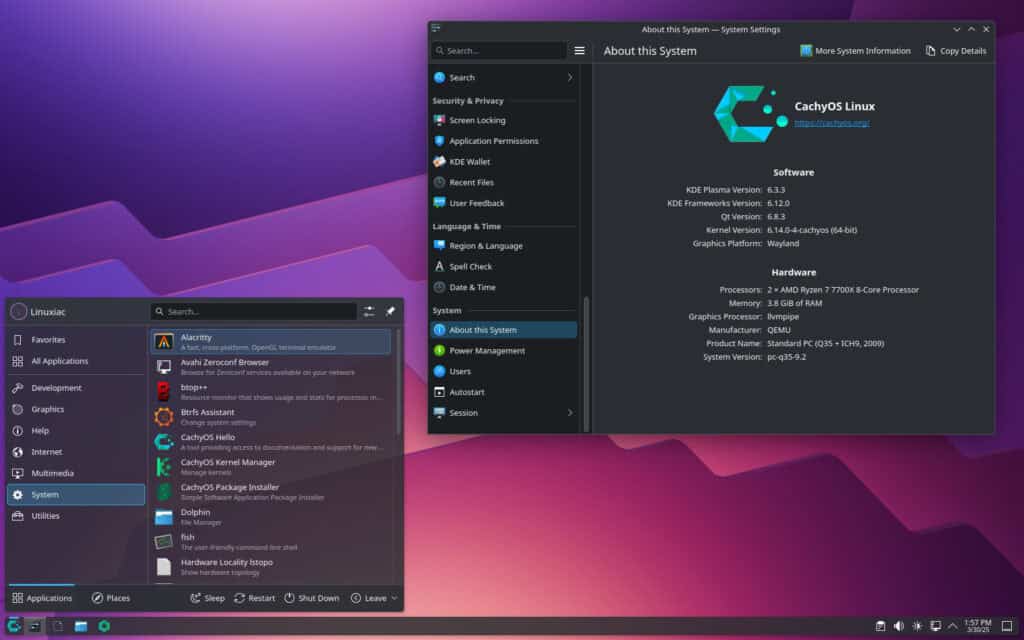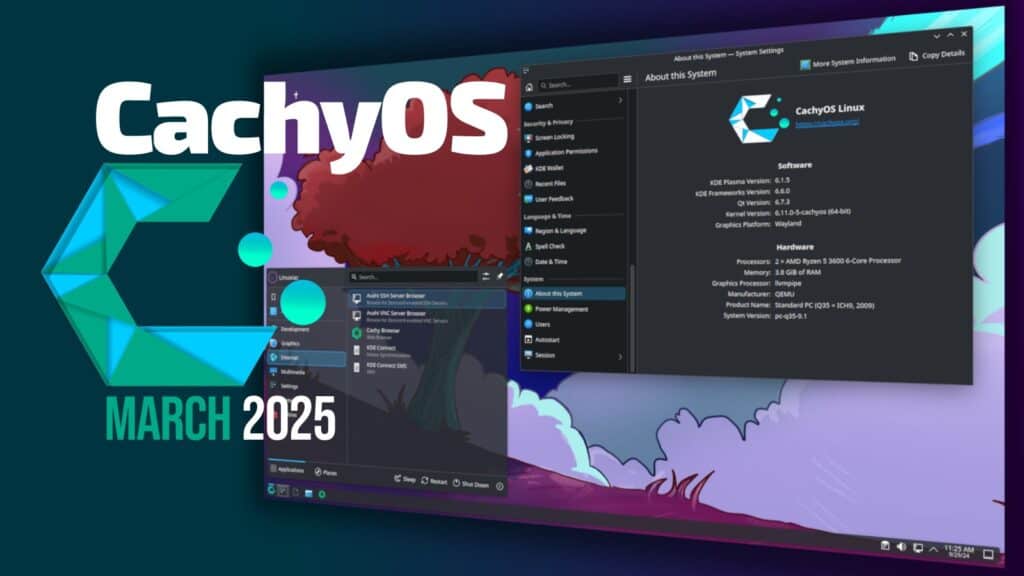Almost two months after its previous February release, powered by the latest and greatest Linux kernel 6.14, the Arch-based gamers-focused CachyOS has rolled out its second 2025 update.
One of the most notable highlights is the new Limine bootloader, designed to support both BIOS and UEFI systems. Much like GRUB, Limine offers a certain level of theming capability, meaning users can personalize their boot screens.

Moreover, the CachyOS team has integrated direct Btrfs snapshot functionality into Limine, on par with the “grub-btrfs” experience. This feature will be activated by default for any new installations utilizing Btrfs, ensuring robust and user-friendly snapshot handling right out of the gate.
Furthermore, in response to user requests and after discussions with NVIDIA, CachyOS now re-enables the GSP Firmware for the closed-source NVIDIA kernel module. Recent improvements have resolved previous issues, making the GSP Firmware more reliable.
Additionally, Samba users will be pleased to find a convenient new package, “cachyos-samba-settings,” which can be configured and set up right after installation. This eliminates the hassle commonly associated with manually configuring network file-sharing settings.
On the kernel side, CachyOS has introduced support for the ASUS Armoury driver, targeting devices like the ROG Ally and select laptops for enhanced fan control and power management.
Due to some reports of incompatibility, users will also see the default NTFS driver reverted to user preferences rather than ntfs3. The system will now follow the user’s default NTFS driver choice, preserving reliability across a broader range of NTFS partitions.

The Wine subsystem also receives a notable enhancement. CachyOS now offers a customized Wine package that leverages WoW64 to strip dependencies from the lib32 libraries. Over time, this approach may further streamline compatibility, especially as Valve/Steam moves away from lib32 support.
For gamers, this update bundles official support for RDNA4, RTX 5070 Ti, and RTX 5070, so they can get these graphics cards up and running with minimal effort. Beyond the main features, CachyOS continues to polish its overall system with many package updates.
These include Linux kernel 6.14, NVIDIA 570.133, Gnome 48, Plasma 6.3.3, mesa 25.0.2, linux-api-headers 6.14, and linux-tools 6.14. A few noteworthy bug fixes have also been rolled into this release:
- Removal of the “crc32c-intel” module in mkinitcpio to rely on “crc32c” instead, addressing the deprecation.
- chwd tool updates to prevent offloading the brcmfmac driver on T2 MacBooks and to avoid installing the outdated 390.xx NVIDIA driver on laptops.
Lastly, users upgrading an existing system should note one critical change if they own an Intel CPU. The “crc32c-intel” module must be removed from “/etc/mkinitcpio.conf” and replaced by “crc32c.” The recommended approach is as follows:
sudo mkinitcpio -Psudo micro /etc/mkinitcpio.conf- Remove
"crc32c-intel"from theMODULES=()line
Afterward, a standard system update via sudo pacman -Syu should get you all the new goodies. Existing users who follow these steps can immediately take advantage of the refined performance, upgraded kernel features, and enhanced hardware support that the March 2025 release delivers.
For more detailed information on all changes, refer to the official announcement. For those opting for a fresh install, the updated ISO files are available for download via CachyOS’s SourceForge mirrors.

The biggest downside with Linux …. is there is so much junk in it. Features no ordinary user needs or wants. There almost should be a branch for ordinary users and hard core chronic NERDS. The Nerd Herd.I get tired of chasing the new shiny lure. At least now I do most of this experimenting in a virtual environment. Now that Arch – has the “Archinstall” script….. It works very well and is fairly simple. We really no longer need these easy peasy silly Distros.